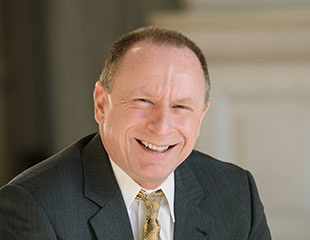U.S. Supreme Court “Clarifies” Standard for Employer Religious Accommodation in the Workplace
July 12, 2023 | Karl R. Ulrich
On June 29, 2023, the United States Supreme Court issued its decision in Groff v. DeJoy, Postmaster General. The Groff decision sought to clarify the undue hardship exception to an employer’s religious accommodation requirement under Title VII. The Court rejected the “more than de minimis cost” test which some lower courts used to apply the undue hardship exception. In the process, the Court seems to have expanded an employer’s obligation to accommodate religion in the workplace.
Groff, an Evangelical Christian, worked for the United States Postal Service. The USPS did not initially require Groff to work Sundays. However, as the USPS took on delivery work for Amazon, Sunday deliveries became the norm. Groff objected to Sunday work citing his religious beliefs. USPS made several accommodations for Groff, including reassigning him to a small rural USPS station which did not do Sunday deliveries. After USPS began conducting Sunday deliveries from that location as well, the USPS first assigned other staff to handle them, including the postmaster, whose job did not ordinarily involve delivering mail. At times, Groff’s Sunday deliveries were also assigned to carriers at the regional hub. Groff was nonetheless disciplined for failing to work on Sundays, and he sued under Title VII.
By rejecting the longstanding “more than de minimis” standard for undue hardship, the Court made it clear that this low bar would make it too easy for an employer to establish undue hardship. Instead, so far as cost is concerned, an employer would have to show “substantial increased costs in relation to its business.” Evaluating for undue hardship must include the consideration of substantial impact on the employer’s conduct of business.
The Groff decision doesn’t provide much more guidance than that. The Court does reiterate that a co-worker’s dislike of a religious practice or a colleague’s bias or hostility toward a particular religious accommodation cannot be undue hardship. The Court also suggested that much of the EEOC’s current guidance on religious accommodation is probably unaffected by its “clarification” in Groff – at least for now.
For its part, the EEOC’s guidance has made it clear that religious accommodations which must be granted for religious reasons but may still be refused for secular reasons. The EEOC cites examples of “common” religious accommodations: exceptions to dress or grooming codes, schedule changes to allow for church attendance, excusing an employee from filling birth control prescriptions where it conflicts with religious doctrine, breaks for daily prayers and, as in Groff, accommodation of a no Sunday work restrictions. On the other hand, the EEOC’s guidance suggests that examples of undue hardship might include: schedule changes which violates a seniority regime or which result in staffing shortages, accommodations which jeopardize security, health and safety.
Religious accommodation and undue hardship continue to be a case-by-case analysis for employers. Contact SS+D’s labor and employment group at 937.222.2500 or kulrich@ssdlaw.com with questions about an employer’s religious accommodation requirements.


